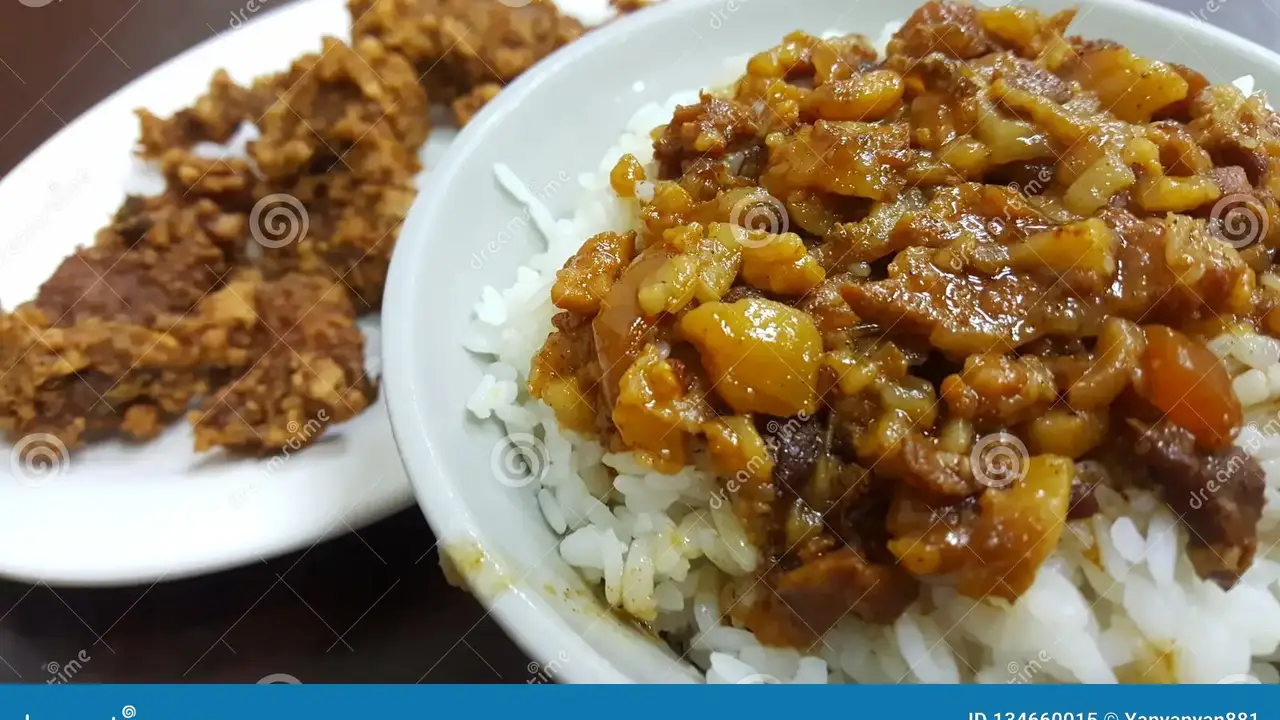Taiwanese Religion: A Blend of Beliefs
Sample meta description.

Understanding Taiwanese Religious Syncretism Key Beliefs and Practices
Taiwan's religious landscape is a fascinating tapestry woven from various threads. It's not unusual to see elements of Buddhism, Taoism, Confucianism, and folk religions seamlessly intertwined. This syncretism, or blending of different religions, is a defining characteristic of Taiwanese religious life. Think of it like a delicious multi-layered cake, each layer contributing a unique flavor to the overall experience.
So, what are some of the key beliefs and practices you might encounter? Well, ancestor veneration is huge. It's all about honoring and respecting your ancestors, believing they continue to influence your life from the spirit world. You'll often see families making offerings of food, incense, and paper money at ancestral shrines in their homes or at temples.
Then there's the belief in a pantheon of gods and goddesses. Taoism, in particular, has a vast array of deities, each with their own specific powers and responsibilities. You might encounter Mazu, the goddess of the sea, popular among fishermen and sailors; Guanyin, the goddess of mercy, revered for her compassion; or Tudigong, the earth god, who protects local communities and businesses.
Fortune telling and divination also play a significant role. People often consult with fortune tellers at temples to seek guidance on matters of love, career, health, or finances. They might use methods like throwing oracle blocks (bua bue), drawing fortune sticks (qian), or interpreting dreams.
Exploring Popular Taiwanese Temples and Their Significance Religious Tourism
Taiwan is dotted with temples, each with its own unique history, architecture, and atmosphere. Visiting these temples is a great way to experience Taiwanese religious culture firsthand. Let's explore some of the most popular ones:
Longshan Temple (Taipei): This iconic temple is a masterpiece of traditional Taiwanese architecture. It's dedicated to a diverse range of deities, reflecting the syncretic nature of Taiwanese religion. You'll find statues of Guanyin, Mazu, Wenchang Dijun (the god of literature), and many others. It's a bustling place, filled with the sounds of chanting, the scent of incense, and the vibrant colors of offerings.
Baoan Temple (Taipei): Another historical gem in Taipei, Baoan Temple is dedicated to Baosheng Dadi, the god of medicine. It's known for its intricate wood carvings, elaborate paintings, and peaceful atmosphere. It's a great place to learn about traditional Taiwanese craftsmanship and appreciate the beauty of temple art.
Fo Guang Shan Monastery (Kaohsiung): This is one of the largest Buddhist monasteries in Taiwan. It's a sprawling complex with magnificent halls, towering pagodas, and serene gardens. It offers meditation retreats, Buddhist studies programs, and cultural events. It's a place to find peace and tranquility amidst the hustle and bustle of modern life.
Tainan Grand Mazu Temple (Tainan): This is one of the oldest and most important Mazu temples in Taiwan. It's dedicated to the goddess of the sea and attracts pilgrims from all over the island. The temple is known for its stunning architecture, its rich history, and its lively festivals.
The Influence of Taoism in Taiwanese Daily Life Taoist Rituals and Beliefs
Taoism is deeply ingrained in Taiwanese culture, influencing everything from daily routines to major life events. Its principles of harmony, balance, and living in accordance with nature are reflected in many aspects of Taiwanese society.
One of the most visible manifestations of Taoism is the use of feng shui. People often consult with feng shui masters when building a house, designing an office, or even arranging furniture in their homes. They believe that the proper alignment of objects and spaces can attract good fortune and promote well-being.
Taoist rituals are also an important part of Taiwanese life. These rituals are performed to appease the gods, ward off evil spirits, and ensure good luck. They often involve elaborate ceremonies, chanting, music, and the burning of incense and paper money.
Another key aspect of Taoism is the belief in the importance of maintaining balance in all things. This is reflected in the emphasis on traditional Chinese medicine, which seeks to restore balance within the body through acupuncture, herbal remedies, and dietary adjustments.
Ancestor Veneration A Cornerstone of Taiwanese Culture Honoring the Departed
As mentioned earlier, ancestor veneration is a central practice in Taiwanese culture. It's a way of honoring and respecting those who came before us and acknowledging their continued influence on our lives. It's not just about remembering the dead; it's about maintaining a connection with them and seeking their blessings.
Families typically have ancestral shrines in their homes, where they display photographs of their ancestors and make offerings of food, incense, and tea. They also visit ancestral gravesites during important holidays, such as Qingming Festival (Tomb Sweeping Day), to clean the graves and pay their respects.
The belief is that ancestors can influence the fortunes of their descendants. By honoring them and seeking their guidance, people hope to receive their blessings and ensure the well-being of their families. This practice reinforces family ties and promotes a sense of continuity across generations.
Festivals and Religious Celebrations Experiencing Taiwanese Culture Through Events
Taiwan is a land of vibrant festivals and religious celebrations. These events offer a glimpse into the heart of Taiwanese culture and provide opportunities to witness traditional customs, rituals, and performances. Here are a few of the most popular festivals:
Lantern Festival: Celebrated on the 15th day of the Lunar New Year, the Lantern Festival marks the end of the Lunar New Year celebrations. People release lanterns into the sky, symbolizing the letting go of the past and embracing the future. There are also lantern displays, riddle-solving contests, and street performances.
Dragon Boat Festival: Held on the fifth day of the fifth lunar month, the Dragon Boat Festival commemorates the death of Qu Yuan, a patriotic poet who drowned himself in a river. People race dragon boats, eat zongzi (sticky rice dumplings), and hang mugwort and calamus to ward off evil spirits.
Ghost Festival: During the seventh lunar month, known as Ghost Month, it is believed that the gates of hell open and spirits roam the earth. People make offerings to appease the wandering ghosts and avoid activities that might attract their attention. At the end of the month, there are ceremonies to send the spirits back to the underworld.
Mazu Pilgrimage: Every year, millions of people participate in pilgrimages to Mazu temples across Taiwan. These pilgrimages involve carrying a statue of Mazu from one temple to another, often covering hundreds of kilometers on foot. It's a deeply spiritual experience and a testament to the enduring popularity of the goddess of the sea.
Products to Enhance Your Spiritual Journey in Taiwan Religious Items and Their Uses
To fully immerse yourself in the Taiwanese religious experience, consider purchasing some of the following items. These are commonly used in temples and homes and can help you connect with the spiritual energy of Taiwan:
Incense Aromatic Offerings for Prayers and Meditation
Incense is a fundamental part of almost every religious practice in Taiwan. It's used to purify spaces, communicate with deities, and create a peaceful atmosphere for prayer and meditation. Different types of incense are associated with different purposes and deities. For example, sandalwood incense is often used for general prayers, while agarwood incense is considered more precious and is used for special occasions.
Product Recommendation: Consider a set of Taiwanese incense sticks, specifically sandalwood or agarwood. Look for brands that use natural ingredients and traditional manufacturing methods. You can find these at most temples or specialty incense shops.
Usage Scenario: Light an incense stick at your hotel or home altar while you pray or meditate. The fragrance will help you focus your mind and connect with the spiritual realm.
Comparison: Cheaper incense sticks may contain synthetic fragrances and burn unevenly. Investing in higher-quality, natural incense will provide a more authentic and enjoyable experience.
Price: A good quality set of incense sticks can range from $10 to $50, depending on the type and quantity.
Prayer Beads (Mala) Counting Prayers and Focusing the Mind
Prayer beads, also known as malas, are used to count prayers, mantras, or intentions. They typically consist of 108 beads, plus a guru bead that represents the teacher or deity. The beads are made from various materials, such as wood, seeds, or gemstones, each with its own symbolic meaning.
Product Recommendation: Get a mala made from sandalwood or bodhi seeds. Sandalwood is known for its calming and grounding properties, while bodhi seeds are associated with enlightenment.
Usage Scenario: Hold the mala in your hand and recite a mantra or prayer for each bead. This will help you focus your mind and deepen your spiritual practice.
Comparison: Plastic or synthetic malas are less durable and lack the spiritual significance of natural materials. Choose a mala made from authentic materials for a more meaningful experience.
Price: A sandalwood or bodhi seed mala can range from $20 to $100, depending on the quality and craftsmanship.
Fortune Sticks (Qian) Seeking Guidance and Divination
Fortune sticks are used to seek guidance from the deities. The set consists of a container filled with numbered bamboo sticks. You shake the container until one stick falls out, and then you consult a fortune teller or a book to interpret the meaning of the number.
Product Recommendation: Purchase a set of traditional fortune sticks at a temple or souvenir shop. Make sure the sticks are made of bamboo and are clearly numbered.
Usage Scenario: Visit a temple and ask a question to the deity. Then, shake the container until a stick falls out. Consult with the temple attendant or a fortune teller to interpret the meaning of the number.
Comparison: Some fortune stick sets come with pre-printed interpretations, but these may not be accurate or relevant to your specific situation. It's best to consult with a knowledgeable person for a proper interpretation.
Price: A set of fortune sticks typically costs around $5 to $15.
Paper Money (Joss Paper) Offerings to Ancestors and Deities
Paper money, also known as joss paper, is burned as an offering to ancestors and deities. It's believed that the burning of paper money transforms it into real money in the spirit world, providing for the needs of the deceased or the deities.
Product Recommendation: Buy paper money at a temple or a religious goods store. There are different types of paper money for different purposes, such as offering to ancestors, deities, or wandering ghosts.
Usage Scenario: Burn the paper money in a designated burner at a temple or at your home altar. Make sure to do it safely and respectfully.
Comparison: Avoid burning large amounts of paper money at once, as this can be wasteful and contribute to air pollution. Burn a reasonable amount as a symbolic offering.
Price: A bundle of paper money typically costs around $2 to $5.
Amulets and Charms Protection and Good Luck
Amulets and charms are worn for protection and good luck. They can be made from various materials, such as jade, wood, or metal, and often depict deities or auspicious symbols.
Product Recommendation: Choose an amulet that resonates with you personally. You might select an amulet of Guanyin for compassion, a Mazu amulet for protection at sea, or a Tudigong amulet for local blessings.
Usage Scenario: Wear the amulet around your neck or carry it in your pocket or purse. It's believed that the amulet will protect you from harm and bring you good fortune.
Comparison: Some amulets are mass-produced and lack spiritual power. Look for amulets that are blessed by a temple or made by a skilled artisan.
Price: Amulets can range in price from $10 to hundreds of dollars, depending on the material, craftsmanship, and blessing.
:max_bytes(150000):strip_icc()/277019-baked-pork-chops-with-cream-of-mushroom-soup-DDMFS-beauty-4x3-BG-7505-5762b731cf30447d9cbbbbbf387beafa.jpg)






